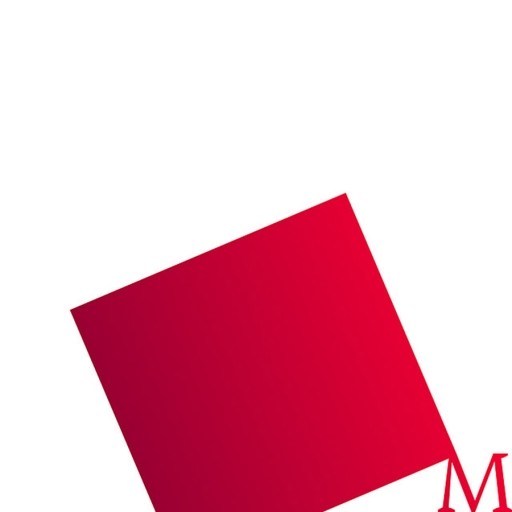The Master of Science in Optical Technologies: Photonics and Laser Technology at Leibniz University Hannover offers a comprehensive and interdisciplinary education designed to equip students with advanced knowledge and practical skills in the fields of photonics, laser systems, and optical engineering. This programme emphasizes the understanding of light generation, manipulation, and detection, and prepares graduates to innovate in areas such as telecommunications, manufacturing, medical technology, and research. Throughout the course, students explore fundamental principles of optics, photonic devices, laser physics, and optical system design, complemented by hands-on training with state-of-the-art laboratory equipment.
The curriculum integrates core scientific concepts with engineering applications, covering topics like quantum optics, nonlinear optics, fiber optics, laser sources, and optical measurement techniques. Students are encouraged to develop experimental and computational skills, enabling them to analyze complex optical systems and contribute to technological advancements in photonics. The programme fosters a collaborative learning environment, engaging students in practical projects, internships, and research collaborations with industry partners and academic institutions.
Leibniz University Hannover’s strong emphasis on research ensures that students participate in innovative projects that challenge current technological boundaries. Graduates of this master's programme are well-prepared for careers in research and development, manufacturing, and consultancy, or for pursuing doctoral studies. The programme’s international orientation and modern facilities make it an attractive choice for students worldwide interested in a cutting-edge education in optical technologies. By completing this degree, students gain not only technical expertise but also critical thinking, problem-solving abilities, and a broad understanding of the impact of photonics and laser technology across various sectors.
Educational organisation
Combination of compulsory and optional lectures, student project, Master's lab tutorial and thesis.Example course programme:
First semester
Lectures:
- Optical Measurement Technology
- Laser Spectroscopy in Life Sciences
- Design of Optical Systems
- Photonics
- Laser Material Processing
- Laser Measurement Technology
- Physics of the Solar Cell
Second semester
Lectures:
- Nonlinear Optics
- Photogrammetric Computer Vision
- Computer-assisted tomographic Measurement- and Visualisation Techniques
- Optical Layers
- Basics of Laser Medicine and Biophotonics
- Automotive Lighting Technology
- Production of Optoelectronic Systems
Third semester
- student Project
- internship
- Master's lab tutorial
- tutorial
Lecture:
- Solid State Lasers
Fourth semester
- Master's thesis
Study abroad unit(s)
OptionalInternships
An internship is not compulsory, but may be useful.Forms of assessment
Written or oral examination after each semesterCourse objectives
The goal of the Master's course is to educate and train specialists and executive staff for the optical industry. The Hanover region in Germany profits from its highly developed culture of basic research centred around the Faculty of Mathematics and Physics, excellent applied sciences at the Faculty of Mechanical Engineering and the Laser Zentrum Hannover e.V. (LZH), and a close collaboration with industry.Hands-on education in a series of laboratory experiments as well as an internship with industry help prepare students for working life in leading companies in the optical industry. By completing their Master's thesis, they will learn how to work independently on projects and gain valuable experience in the planning and execution of projects.
Everybody who completes the Master's course will gain a broad knowledge of optical technologies. The classes will convey state-of-the-art knowledge, skills, and methods. Finally, these young researchers will be fully prepared to start a fast-track career in optical technologies.
Language requirements
Applicants have to provide proof of their English skills of at least level B2, for example, by a language certificate:TOEFL score of 550 (paper-based) / 87 (Internet-based) / 213 (new scale)
IELTS score of 6.0
Cambridge Certificate Grade A
Academic requirements
Bachelor's degree, "Diplom", "Staatsexamen" or equivalent in physics or engineering or related area, certificate of necessary credit pointsAdditional information for applicants from China (People's Republic of China but not Hong Kong and Macao), Mongolia and Vietnam:
Any university study achievements you have earned generally have to be checked and certified by the Akademische Prüfstelle (APS), irrespective of your nationality or whether you have already completed a degree in another country.
Enrolment fees
Approx. 370 EUR as administrative fee incl. semester ticket (public transport costs)Costs of living
Expenses per month:Rent, additional costs: 282 EUR
Food: 148 EUR
Health (health insurance, medicine, consultations): 60 EUR
Clothing: 49 EUR
Telephone, internet, etc.: 43 EUR
Other (cultural events, sports, leisure activities): 81 EUR
Total costs of living: 663 EUR
Administrative/semester fee: 84 EUR
Other study costs: 45 EUR
Total study costs: 129 EUR
Total costs: 792 EUR
Please see: http://www.international.uni-hannover.de/lebenshaltungskosten.html?&L=1
Job opportunities
There are many opportunities to work as a student assistant (Hiwi) or outside the university:http://www.international.uni-hannover.de/jobben_hannover.html?&L=1
Arrival support
The International Office offers a variety of services and support for international students.It helps students in finding suitable accommodation, offers a pick-up service from the airport or railway station, provides newly arrived students with a "study buddy" and helps them deal with administrative issues. Moreover, it organises an orientation week at the beginning of each semester.
http://www.international.uni-hannover.de/
Services and support for international students
Every semester, the International Office organises a variety of events, workshops, and trips specifically for international students. They range from cultural, political, or historical topics to BBQs and rowing events.http://www.international.uni-hannover.de/events.html?&L=1
In addition, the International Office offers financial support for students in a situation of need.
http://www.international.uni-hannover.de/finanzielle-beihilfen.html?&L=1
Accommodation
The International Office, in cooperation with the "Studentenwerk" (Student Services), offers an accommodation service for all newly incoming international students and scholars. This free service can help you find a suitable room or apartment. In the case that you don't need your accommodation for a certain period of time, we can try to help you to rent out your room.Please contact: zimmervermittlung@io.uni-hannover.de






